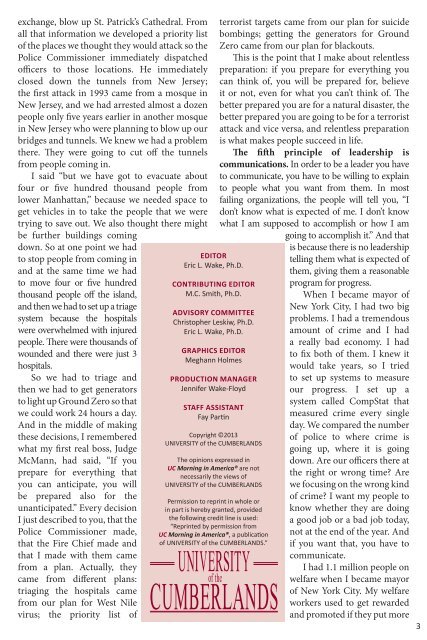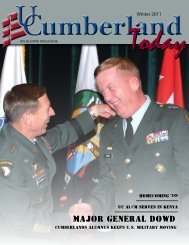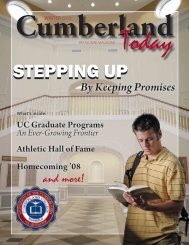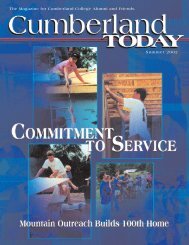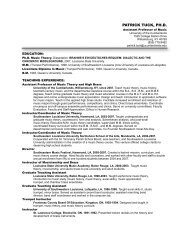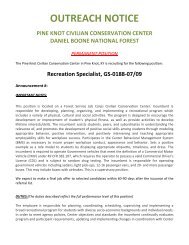Volume 4 Issue 1 - March 2013 - Downloadable Version
Volume 4 Issue 1 - March 2013 - Downloadable Version
Volume 4 Issue 1 - March 2013 - Downloadable Version
You also want an ePaper? Increase the reach of your titles
YUMPU automatically turns print PDFs into web optimized ePapers that Google loves.
exchange, blow up St. Patrick’s Cathedral. Fromall that information we developed a priority listof the places we thought they would attack so thePolice Commissioner immediately dispatchedofficers to those locations. He immediatelyclosed down the tunnels from New Jersey;the first attack in 1993 came from a mosque inNew Jersey, and we had arrested almost a dozenpeople only five years earlier in another mosquein New Jersey who were planning to blow up ourbridges and tunnels. We knew we had a problemthere. They were going to cut off the tunnelsfrom people coming in.I said “but we have got to evacuate aboutfour or five hundred thousand people fromlower Manhattan,” because we needed space toget vehicles in to take the people that we weretrying to save out. We also thought there mightbe further buildings comingdown. So at one point we hadto stop people from coming inand at the same time we hadto move four or five hundredthousand people off the island,and then we had to set up a triagesystem because the hospitalswere overwhelmed with injuredpeople. There were thousands ofwounded and there were just 3hospitals.So we had to triage andthen we had to get generatorsto light up Ground Zero so thatwe could work 24 hours a day.And in the middle of makingthese decisions, I rememberedwhat my first real boss, JudgeMcMann, had said, “If youprepare for everything thatyou can anticipate, you willbe prepared also for theunanticipated.” Every decisionI just described to you, that thePolice Commissioner made,that the Fire Chief made andthat I made with them camefrom a plan. Actually, theycame from different plans:triaging the hospitals camefrom our plan for West Nilevirus; the priority list ofEditorEric L. Wake, Ph.D.Contributing editorM.C. Smith, Ph.D.Advisory CommitteeChristopher Leskiw, Ph.D.Eric L. Wake, Ph.D.Graphics EditorMeghann HolmesProduction ManagerJennifer Wake-FloydStaff AssistantFay PartinCopyright ©<strong>2013</strong>UNIVERSITY of the CUMBERLANDSThe opinions expressed inUC Morning in America® are notnecessarily the views ofUNIVERSITY of the CUMBERLANDSPermission to reprint in whole orin part is hereby granted, providedthe following credit line is used:“Reprinted by permission fromUC Morning in America®, a publicationof UNIVERSITY of the CUMBERLANDS.”terrorist targets came from our plan for suicidebombings; getting the generators for GroundZero came from our plan for blackouts.This is the point that I make about relentlesspreparation: if you prepare for everything youcan think of, you will be prepared for, believeit or not, even for what you can’t think of. Thebetter prepared you are for a natural disaster, thebetter prepared you are going to be for a terroristattack and vice versa, and relentless preparationis what makes people succeed in life.The fifth principle of leadership iscommunications. In order to be a leader you haveto communicate, you have to be willing to explainto people what you want from them. In mostfailing organizations, the people will tell you, “Idon’t know what is expected of me. I don’t knowwhat I am supposed to accomplish or how I amgoing to accomplish it.” And thatis because there is no leadershiptelling them what is expected ofthem, giving them a reasonableprogram for progress.When I became mayor ofNew York City, I had two bigproblems. I had a tremendousamount of crime and I hada really bad economy. I hadto fix both of them. I knew itwould take years, so I triedto set up systems to measureour progress. I set up asystem called CompStat thatmeasured crime every singleday. We compared the numberof police to where crime isgoing up, where it is goingdown. Are our officers there atthe right or wrong time? Arewe focusing on the wrong kindof crime? I want my people toknow whether they are doinga good job or a bad job today,not at the end of the year. Andif you want that, you have tocommunicate.I had 1.1 million people onwelfare when I became mayorof New York City. My welfareworkers used to get rewardedand promoted if they put more3


